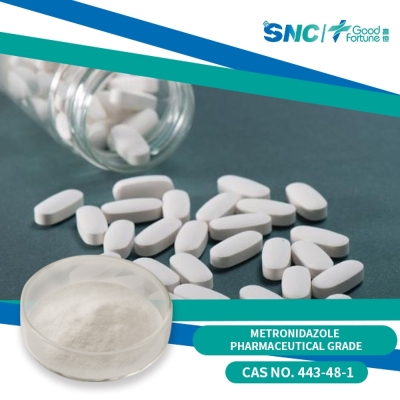-
Categories
-
Pharmaceutical Intermediates
-
Active Pharmaceutical Ingredients
-
Food Additives
- Industrial Coatings
- Agrochemicals
- Dyes and Pigments
- Surfactant
- Flavors and Fragrances
- Chemical Reagents
- Catalyst and Auxiliary
- Natural Products
- Inorganic Chemistry
-
Organic Chemistry
-
Biochemical Engineering
- Analytical Chemistry
-
Cosmetic Ingredient
- Water Treatment Chemical
-
Pharmaceutical Intermediates
Promotion
ECHEMI Mall
Wholesale
Weekly Price
Exhibition
News
-
Trade Service
Streptomycin sulfate, a derivative of the naturally-occurring Streptomycin antibiotic, has a wide range of applications in the chemical industry.
Streptomycin sulfate is an off-white to yellowish-white crystalline powder that is soluble in water and ethanol.
This compound has a high melting point and is used as a starting material in the production of various chemicals.
One of the most common applications of Streptomycin sulfate is as a catalyst in the production of polyester fibers.
In this process, Streptomycin sulfate is used to initiate the polymerization of Bisphenol A and ethylene glycol to form polyethylene terephthalate (PET).
The polymerization process is carried out in the presence of a catalyst, such as Streptomycin sulfate, to increase the rate of reaction.
Another application of Streptomycin sulfate is in the production of dyes and pigments.
The compound is used as a catalyst in the production of basic dyes, such as Acid Orange 7, and direct dyes, such as Acid Red 17.
Streptomycin sulfate is also used in the production of pigments, such as titanium dioxide, which is used in a wide range of applications, including paints, inks, and plastics.
Streptomycin sulfate is also used as a catalyst in the production of various polymers, such as polyurethanes and polyureas.
In the production of polyurethanes, Streptomycin sulfate is used to initiate the polymerization of the monomer, which is then used to produce foams, coatings, and adhesives.
Similarly, in the production of polyureas, Streptomycin sulfate is used to initiate the polymerization of the monomer, which is then used to produce elastomers and other materials.
Streptomycin sulfate is also used in the production of various pharmaceuticals.
The compound is used as a starting material in the production of antibiotics, such as Tetracycline and Chlortetracycline.
Streptomycin sulfate is also used in the production of antifungal agents, such as Nystatin, and anti-inflammatory drugs, such as Prednisolone.
In addition to its use in the chemical industry, Streptomycin sulfate is also used in the food and beverage industry.
The compound is used as a preservative in a wide range of food products, including meats, dairy products, and bakery items.
Streptomycin sulfate is effective in preventing the growth of bacteria, mold, and yeast, which can cause spoilage and contamination.
In conclusion, Streptomycin sulfate has a wide range of applications in the chemical industry.
The compound is used as a catalyst in the production of various chemicals, including polyester fibers, dyes and pigments, and polymers.
Streptomycin sulfate is also used in the production of pharmaceuticals and as a preservative in the food and beverage industry.
The compound's ability to initiate polymerization reactions and prevent the growth of bacteria, mold, and yeast makes it a valuable chemical in the production of a wide range of products.







